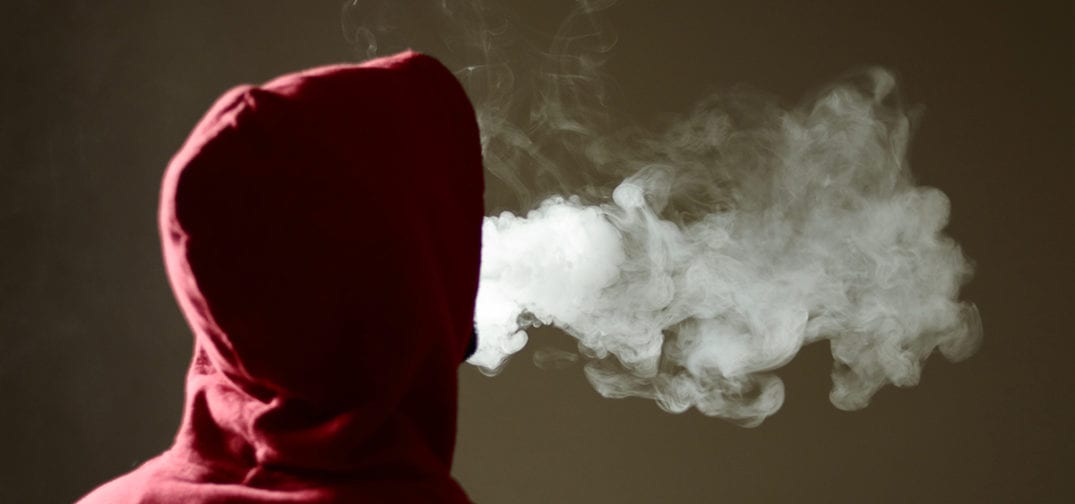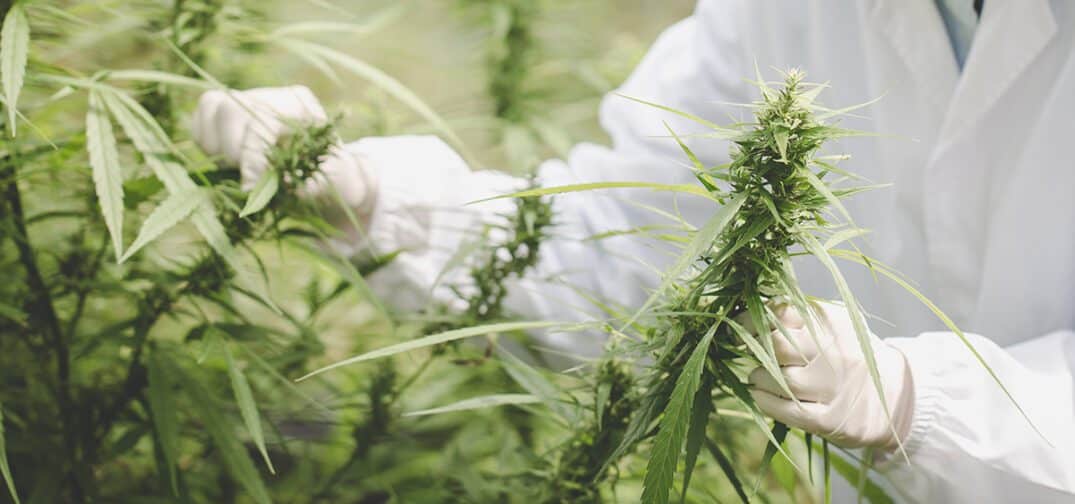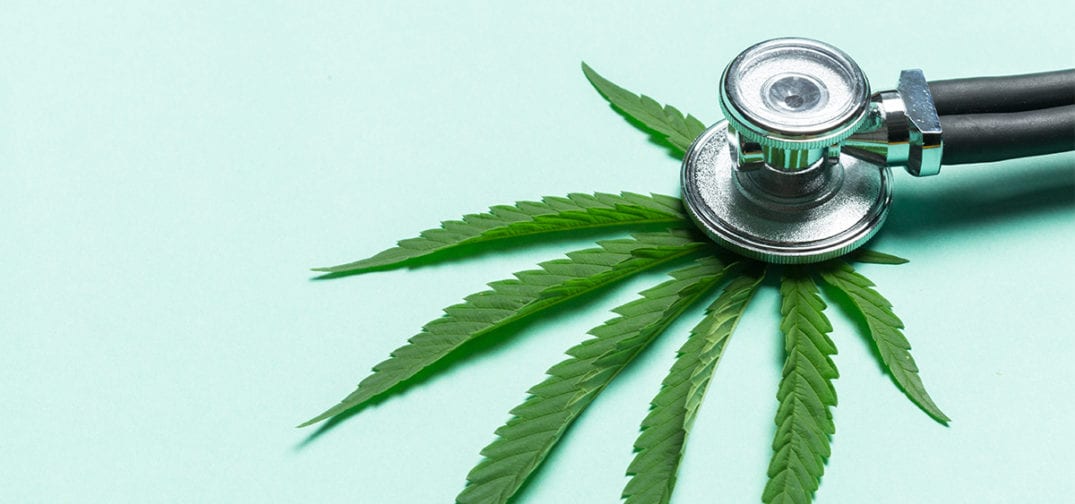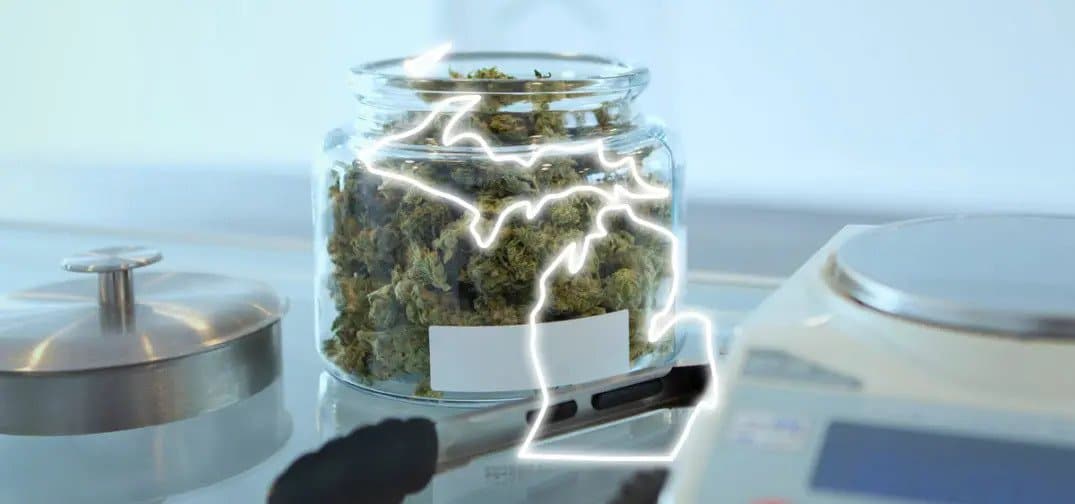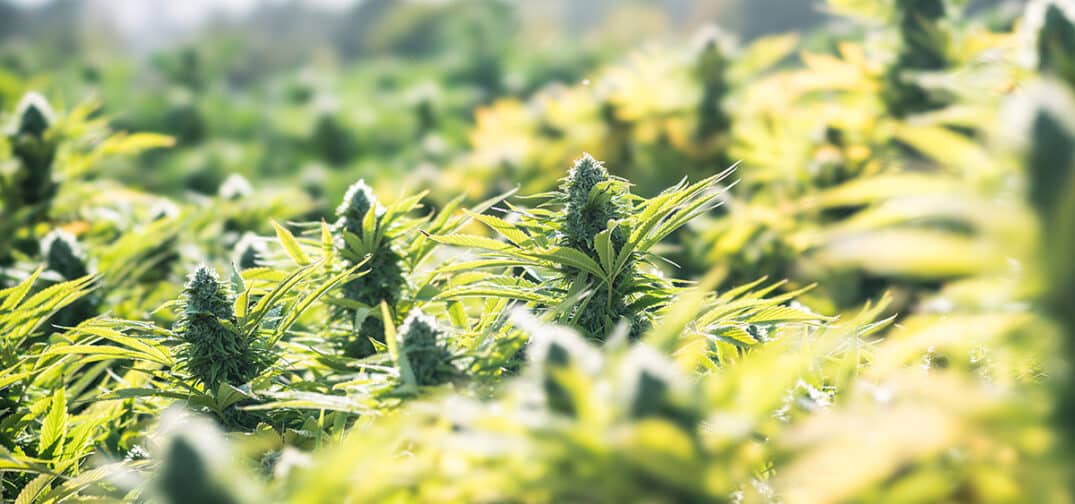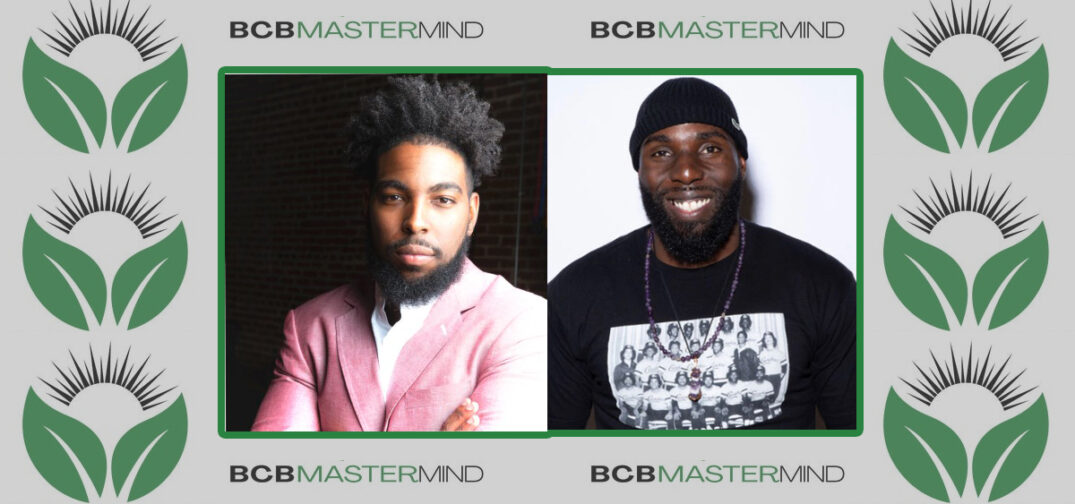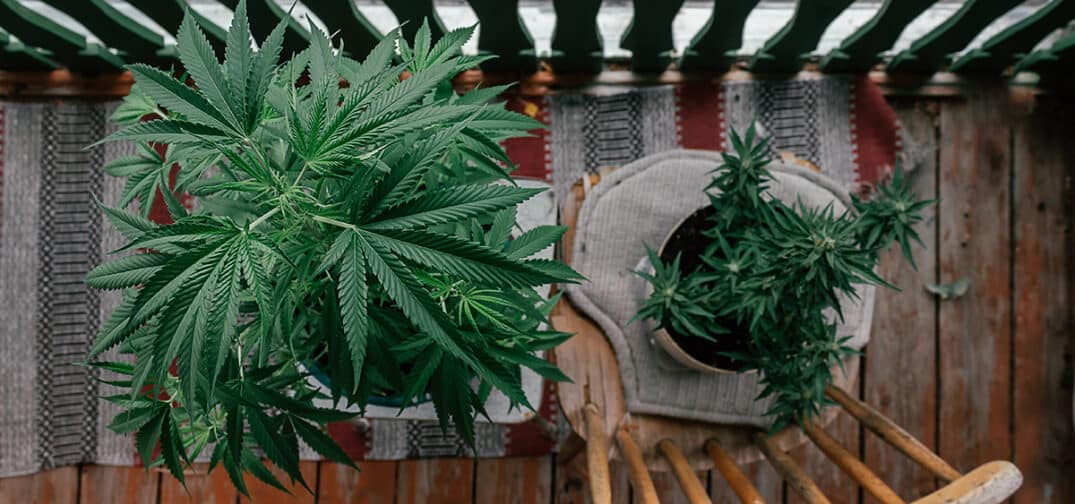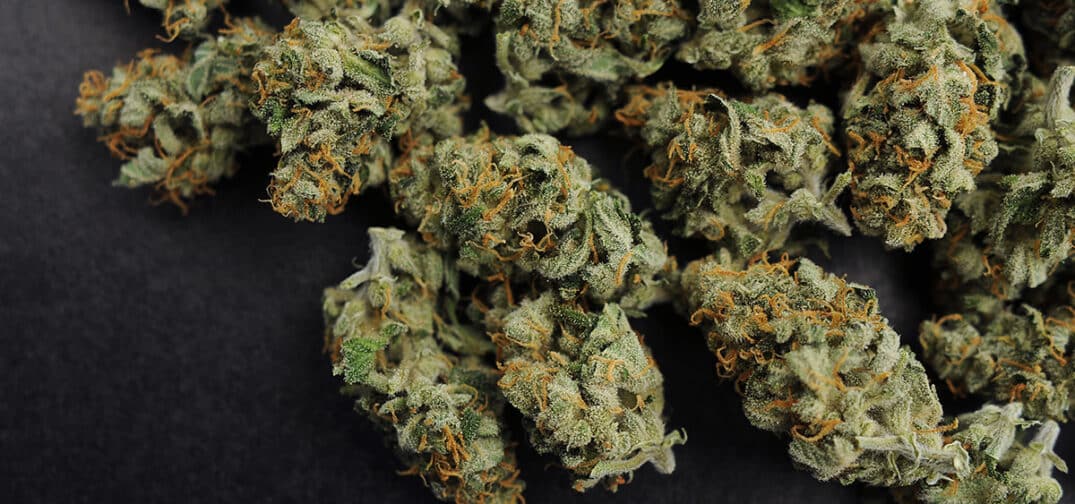In this episode of the Ganjapreneur podcast, host TG Branfalt is joined by Brandon Wyatt, Esq. and Todd Hughes, co-founders of BCB Mastermind, an executive training program designed to propel minority-owned cannabis and hemp businesses to new heights. In this episode, they discuss the critical barriers that entrepreneurs face in the cannabis space, from access to capital and regulatory challenges to the overlooked potential of industrial hemp. With backgrounds in law, engineering, and advocacy, Brandon and Todd bring a holistic approach to business strategy, emphasizing community-driven solutions, policy reform, and the power of sustainable innovation. Tune in below for a deep dive into the intersections of social equity, business leadership, and the future of hemp beyond consumption.
Listen to the episode:
Read the full transcript:
Editor’s note: this transcript was auto-generated and may contain errors.
Commercial:
The Ganjapreneur Podcast is made possible by over 500 cannabis industry service providers in Ganjapreneurs Cannabis Business Index. At some point, every plant touching brand experiences the stigma that many industries still have to toward cannabis going strong. Since 2015, our business index is the most comprehensive and frequently visited directory for cannabis friendly services on the internet, saving you the time and hassle of sifting through uninformed and unwelcoming providers with categories for everything from business financing, to extraction equipment to interior designers and public relations. You’ll find every kind of specialist and business service you could ever need. Check out the business index today at ganjapreneur.com/businesses.
TG Branfalt:
Hey there, I’m your host, TG Branfalt, and this is the Ganjapreneur.com podcast where we try to bring you actionable information and normalize cannabis through the stories of ganjapreneurs, activists and industry stakeholders. Today I’m joined by Brandon Wyatt, Esquire. and Todd Hughes, co-founders of BCB Mastermind, an Elite Executive Training program designed to propel minority owned cannabis and hemp businesses to new heights. How you doing this afternoon, fellas?
Brandon Wyatt:
What’s up? How you Hey,
TG Branfalt:
Hey, hey. So I’m real excited to have you guys on. I’ve read a lot about what you do and it’s really compelling stuff. I’ll just start with that. But first tell me about yourselves. How did you end up in the cannabis space?
Todd Hughes:
I guess I’ll start. Background is mechanical engineering, went to Howard University. This is Todd Hughes here. Everyone a pleasure to be on. First and foremost, thank you for allowing us to be on the call.
TG Branfalt:
It’s my pleasure. My pleasure guys.
Todd Hughes:
This means a lot to us. I’ve been doing a lot of work and it feels good to be recognized, but I’m Todd Hughes, background mechanical engineering and working in the federal government for a long time and a lot of friends of mine thought, Hey, I was the definition of success because I had a good paying job that’s pretty secure. But then they asked me for help and it was pretty difficult for us to do so. And so one challenge came about, a friend got kicked out of school for less than an ounce of cannabis, and I called the only savant I knew at the time, and it was still one of the only major level savant, Brandon L. White, Esquire, to help me come up with a solution. And I think the work speaks for itself now. Numbers of events, conferences, music festivals, and now businesses in the cannabis space that we’ve been able to be a part of or lead has led to us starting this mastermind and getting things done. But I’ll let Brandon talk about his flows and how he got to the space because it’s much different and much more dynamic.
Brandon Wyatt:
Oh man, Brandon, who is that guy? That’s me. I’m Brandon Wyatt. As far they say at the end, because I did a lot of school, I guess to start, I’m a functional person even though I have a formal title. I think there’s a big difference in this world between function and form. And that’s what I saw about cannabis being able to solve a functional problem and human rights, not just civil rights related to the arrest rates, not just medical disability rights related to the patient causes, but human rights even as we look at our environment for what the hemp plant can do in the manufacturing paralysis that it possessed. And as Todd mentioned, I don’t consider myself in a savant, but one of the things we educate on is thinking deeply is hard work. And to really take the time to dissect a problem from all angles, you might need a couple of lawyers or a couple of engineers, a couple of great hosts that run wonderful grounds renewal podcasts they’ve been waiting to get on for years and years and years and did the functional work to do it and work with students to do that.
So Brandon, I’m a disabled combat veteran. I’m a Howard Law graduate. I’m a kid from North Carolina that fell in love with a plant in his community. Pretty simple.
TG Branfalt:
I mean, those are really unique backgrounds for anyone who’s really in this space. Can you tell me a little bit more, Todd, about what you learned from the sort of electrical engineering aspect of your life and you brought into this industry?
Todd Hughes:
Yeah, mechanical engineering, mechanical, it’s more about program project management and figuring out processes to get work done and moving teams of individuals that are working on complex, maybe highly regulated industries and making sure we stay in compliance and move forward. So those skills are definitely transferable. And I’m not a cannabis expert by any means or any stretches, but I also try to leverage organization, project management and making sure we stay on track to deliver. So that’s what is transferable for sure.
TG Branfalt:
And what about you, Brandon? Did you go to law school with this expectation in mind that you would work in this industry in some form or fashion or in some sort of regulated industry?
Brandon Wyatt:
Right. I went to Howard University for law school, which is huge, right? We’re the number one civil rights civil liberty school in all time, forever and ever and will be great. Folks like Pauly Murray, who’s actually a woman came from our school and designed frameworks to help move civil rights and civil liberties forward. And so when I went to school, the question was what problem do I want to solve? And the problem, how do I make money? The problem was for me, how do I help others remove barriers and access to their employment and that help them move forward in life? That could come in a form of healthcare, that could come in a form of job creation, different things that could come in just being actual friend to someone that doesn’t know what they want to do or how they want to solve the problem.
So when I came out of law school, I was absolutely focused, but by that time I was a patient. I’m a hundred percent disabled combat veteran. I used to jump out of planes for a living and really got injured. And even more so seeing other people injured. And that hurt me mentally to the point I really felt broke. And if it wasn’t for Mary Jane, the wonderful thing, the plant that she is in, its purest forms in the most beneficial forms, not just off the street, but a medical format. I would not have been able to heal myself in a capacity to be functional to this world at all. So absolutely, I owed her a favor and I owed my community the favor of being the lawyer that actually changed the demographic of, no, I’m not here for criminal law. When I say I’m a cannabis attorney, I’m here to rewrite policy. I’m here to work with a wonderful award-winning engineer to design programs and policies that get functional businesses stood up that can get medication to patients. And we’ve been dedicated to that.
TG Branfalt:
What an unbelievable story. Guys, can I ask how you met?
Todd Hughes:
I fell out the sky and he caught me.
Brandon Wyatt:
We both smile. It’s a podcast so you guys can smiling at each other through the thing. But yeah, Ty’s a guy saying, we’re also fraternity brothers. So in the terms of him always seeking improvement in his relations and friendships, Todd is truly one of those younger fraternity brothers. If anybody is in organizations that you love to see, seek interest in your organization because you’re going to move forward faster and better. And so when he met and he came to me for help, it was super, super humbling. But I also was very serious like, Hey, you got to listen to what I say. I’m a barred attorney. I have multiple bars, federal bars. I go to court all the time at that point. And being able to really transition the entirety of my life to realistically the streets, man streets, getting out here, getting in people’s faces, throwing large conferences, die-ins with other veterans, throwing thousands of bottles at the White House, giving away hundreds of thousands of joints alongside other activist groups riding nationwide policy, sitting in Congress.
I mean, this has been the ride of my life for 10 years. And to capstone it by saying the blessing of being able to educate and working with a wonderful company. Let me tell you guys about this company, Satara Parallel Netta in Massachusetts. They have this leader there, her name is Lynette French, and she is a lions, I mean truly, truly, truly dedicated to making sure that barriers are removed for access in the industry, not just as patients receiving medicine, but by ensuring fair market competition. I haven’t met many people like her. I challenge other sponsors and other companies to be more of that nature because she received the benefit from that tenfold. And I would be remiss if we didn’t bring them up because finding them along this way in the journey is how BCB itself, the training side of what Todd I do came about.
TG Branfalt:
So maybe you can hook us up and get Netta on the show potentially, huh?
Brandon Wyatt:
I think that might be something we can for sure do.
TG Branfalt:
So I do want to talk to you guys, jump right into it about the BCB Mastermind program. Tell the listeners about the program and what are the goals?
Todd Hughes:
Yeah, it’s an executive MBA training program, taking the experience from all of our lifestyles from before, the training, the education, the teams, the sports, everything that we’ve been a part of. And then the friends that we’ve made along the way who have experience in the industry to help folks that are black and brown diverse groups, and not just black and brown, but diverse groups of people to come in and have access to this knowledge, right? Knowledge is something that’s within you and we’re just here to uncover it and bring it out. And so when folks are participating in the mastermind, they receive an ecosystem. This ecosystem has been systematically destroyed and broken by bad policies and laws and such, and we are not going to sit back and just complain. We’re going to do something about it. So the mastermind was something that parallel and Netta and ourselves got together and said, these entrepreneurs need scaffolding. They need support, they need the access to resources, the knowledge network and capital as you can always see us saying is imperative. And so that’s how the program has come to be. And the goals of the program are literally just to be there to be your best friend along the way. As Brandon mentioned, our life has been a dynamic crazy journey to this point and it is good to be able to share that with other folks along the way.
TG Branfalt:
When you mentioned the scaffolding, you mentioned the resources. What are the sort of, I guess, biggest barriers to entry for the cannabis industry among the people that end up in a B, CB mastermind course program?
Brandon Wyatt:
Well, I mean the question that you just answered is simply too deep for the user. And it can break down to is the barrier your state is the barrier, your municipality, right? Is the barrier, your composition as a human, right? There are many good people who the barrier is that you did too well in life. You might’ve came from a hard circumstance. You might had parents who were arrested for on drugs. You might’ve went through everything. You might’ve been a patient the whole time, but because you succeeded and your net worth is over a certain amount, you’re not qualified regardless of if you were minority, small business, whatever the case may be, disabled, veteran doesn’t matter. So there are so many barriers in trying to normalize what is the reality of each individual is why that mastermind exists, right? To bring people together to address these barriers so they can do something about ’em because you can either go up under or around or over it or we can take the time to try to remove it.
So really helping someone come to clarity on what their particular barrier is in the industry is important because that also exists. And dare I say on the hemp side, which we’re on, I know it’s in your notes to talk about, but I think this is a part, some people’s barrier, they’ve been scarred. People got into this hemp industry, 20 19, 20 20, seeing things run up, $4,200 for leaders of distillate, things like that. Put their whole life savings, their farm on it, got state legislation to get licenses and whatnot. And then this stuff has been sitting in the barn riding or they had a bad processing deal because they were strictly focused on flour. And then for us to be able to come back as thought leaders and remove a barrier, which was one people’s mind, that this plant is only good for consumption of your human body and not as opposed to what is good for the environment, building manufacturing processes along with other sustainable biomasses and also carbon sequestration and remediation for the planet. So many of the barriers that exist are those that also are new for the industry, which came because of money. People got scarred because of money and they lost their purpose. And that’s just the reality.
Todd Hughes:
Basically what Brandon is saying, thinking deeply is hard work is really not necessarily a barrier. It’s what you’re going to do about it. And so as he mentioned, the plant folks waste 80% of the plant on just focusing on the flower. And it can create shelter, it can create clothing, it can create medicine, it can fight or remediate the land. It can also clean air, take carbon out of the air. And those are such beautiful things. It has 10,000 uses. And so we’re only talking about one. And a lot of people come into the mastermind with the expectation that, Hey, I got a beautiful product and it’s going to have this brand and it’s going to do all these great things, but it’s not about what you do, it’s how you do it. There’s a whole bunch of brands out here. There’s a whole bunch of people in the cannabis space. How are you going to really execute your business and make it scale? And so we make people think hard and deep about it. It sucks. It’s like, man, I thought I was here and I’m all the way back here. And so that’s the experience of folks as they come in, we help them remove the barriers in their mind
Brandon Wyatt:
Or they’re ahead. They might’ve thought they were behind like, oh man, I didn’t have nothing. I was mine. My little lane over here, I ain’t have enough. And in fact, they’re the missing piece. They’re the key to everything.
TG Branfalt:
Exactly. I mean, it sounds like you guys take a very holistic approach to this, which a lot of people might not expect coming from something that describes itself as an executive training program. I mean,
Brandon Wyatt:
I guess they’ve never built executives before. And that’s probably the side as I sit back and say it, the truth of actually working and knowing what keeps a CEO up at night, you might have to be a lawyer to really understand that, and you might have to have a functional understanding of business to underpin it. And then on the other side, you might have to be an extreme project manager and engineer, diversely able to run into walls and problems solving things and teach someone or support someone to be comfortable enough to know that that’s actually a form of success and change that paradigm and give them the proper tools, networking, capital knowledge, networking capital, excuse me, for them to accentuate those goals. And so actually working with CEOs, if you look at most CEO eTraining here, honestly, it’s on a resort in Tahiti and they’re trying to calm them down because they ain’t seen their family in two, three weeks. And it’s a difference between a CEO and an owner and an investor and an artist. Some things that we have to make functional understandings of to fit a formalistic title.
Todd Hughes:
And some people come out of the program and realize, Hey, I’m not cut out for C EShip, but I am a great team player. I do fit this role. I can be a artist and if you only let me be an artist, I’m going to be at my greatest. And so we call it icky guy, right? What the world needs, what you love to do, what you can get paid for, and what your vocation is, what your profession is, how do those intersect, right? Sometimes you’re like, man, I don’t know if I have it all. And it means we need a team. A lot of the entrepreneurs that come through the program are solopreneurs, and that’s cool. You can definitely do that, but you don’t have leverage if you don’t have ability to automate, delegate, or eliminate any of those things that come about on a day-to-day basis. Financials and accounting. Do I know that my money is where it needs to be, when it needs to be, and these people are paid and I’m not getting sued and all these different things. Other things. What is an operating agreement? What are the key things in the oa? What is a cap stack?
Brandon Wyatt:
I think we got to take a step back. What the heck is a icky guy? That sounds like a bad date. I went out last night with an icky guy like, girl, please. No, just joking. We incorporate culture. What’s real culture? That’s a Japanese word. As Todd said, the way of living. How many words do our listeners know that have three eyes in it? I’ll give you a second. How many people thought of Mississippi? Okay, well, we got to move past that, right? Because when you look at business and you look at who you are and the purpose of yourself, there is a dual eye. There is a triple lens of how you have to look at it. So the word masses, the thing, functional understandings of business in a formalistic process, and having a sponsor like Satter and working with some of the other folks to gain new sponsors who want to bring this type of energy to their community does something amazing because their client base becomes more diverse.
And diverse means more revenue. And all of us are taught to diversify our revenue stream. So now let’s tie that back to the other CEOs and business who think investing in disparate communities is an important, well, you’re even overcoming different business capitalism concepts on diversifying portfolios by solely investing assets in one thing. So even being able to approach the larger leaders and give people true functional business conversations that they can have, and really a protocol that works for us to get a high level of attention, high level of marketing, high level of touches, that gives a functional reason for even the next step of things, which we really do, is create strategic partnerships. How do folks access this talent? The talent has to be prepared. And so does the talent seeker to know what exponential growth feels like.
TG Branfalt:
Y’all are thinking in the fourth dimension, man,
Todd Hughes:
Six D baby.
TG Branfalt:
So what can people expect who attend a B, CB mastermind program? Walk me through just sort of how it goes.
Todd Hughes:
Spell it out for you. LOVE, straight love, compassion. People that come in with open hearts, open minds. Everybody checks their ego at the door and are not afraid to share where they currently are in business and open the learning, like I said before. And every mastermind ends up in tears, right? We’re like, let it out. And this is love. And I got a whole team and network to support me going forward. I ended up in tears one time when I was back home. We were in Pittsburgh doing in operation out there and shout out to Tena and their other brand good blend that allowed us to do that. But ultimately, it is an immersive experience. So you come in not just it’s music, it is information, it is sharing. It’s a Socratic method where the students teach the class and we kind of give them prompts and allow them to duke it out on what’s real and what’s not, right?
We tap all learning styles to make sure that the people leave one with experience. One, they’re actively engaged the entire time. There’s no point where it dies out. The enthusiasm is there, the energy is there, and the information sharing and knowledge building and learning about the other people in the room who has a skillset that I could tap into. I have a shortfall. Maybe I could help them and solve a problem that they have. That’s the experience over two days. And then the second part, I let Brandy go into the mixer and how we award folks that have been doing great things in the space.
Brandon Wyatt:
Yeah, it’s two days in person at the current disposition because of the wonderful sponsors and outreach and because of the vast marketing and data touches that we get, as you said, there’s a lot of articles, a lot of ways for people to be seen as doing the most good in their communities. So being able to actually touch in and have two days in person and do something that’s rare, which is reengage the vigor for education. All business owners are lifetime learners. The best ones are the ones who continue on in business. I think being able to have folks that commit to that, to work with that as designers, partnerships is a key element of what I learned during my MBA program at the George Washington University. And so having an MBA and law degree and all the things, formalistically tied being everything but doctorate, there are a lot of elements that we can speak about easily, but they’re the result of millions of dollars in education that we’ve sought and has been poured into us that we’re reformatting for others to reinvigorate themselves to move forward.
I mean, to be honest, not everyone has a college degree. Some people have vocational certificates, training certifications. And to be even more direct, some of the folks that we are recruiting and are being in the program have to have criminal records depending on their state. So they’ve been disenfranchised and they need a way to access their greatness and their genius. So we do that. But also connecting their network, we have a good opportunity to meet trailblazers in each community and work with them to award them. And Lord, what we understand is the diverse needs in getting the policy reform and also some of the groundwork in cannabis. It’s a selfless industry in a lot of ways. A lot of businesses aren’t making as much money as they would like, and they’re sucking down wind. So it’s nice to be able to be recognized, to be re-motivated.
We work with that and then we have six weeks online. Of course. Now you got to really get into it and being able to have the time, make the time during the work week, one day on the weekend, meet diverse entrepreneurs and learn from them in a format that structure in a way that you can learn from. And being able to also apply that in a way that allows folks to go out and get some of these grants, get some certifications that matter. Because realistically, the ability for businesses to realize and develop inroads to have positive government relations. The biggest companies have huge GovCon departments as a small startup, did you even know? And it is not a if you didn’t because shoot a lot and it’s not written somewhere. So actually getting to know what you got to do and to getting the function understanding of how to do it, and then actually having maybe a couple friends that are of similar minds that of similar training. I think training is important. They go and do that with you helps a lot of folks. That’s imperative. So six weeks through, they finish up, they go off and continue to be great.
TG Branfalt:
Do a lot of the people who complete the program or go through the program for that matter, do they keep in contact with you guys?
Todd Hughes:
Yeah, we got an alumni WhatsApp, right?
Brandon Wyatt:
They don’t like us. They talk to each other all the time. They all to each other every day. They have competitions and doing things. They can call me some more. I miss y’all. If y’all listen, call me. I mean,
Todd Hughes:
Yeah, every once in a while they hit us up like, oh, I’m running into this, or you got any advice on that? But they have, like I said, they created the ecosystem. So they have WhatsApps, they have fireside chats and such that they bring folks from parallel on. They kind of give them advice and they keep it flowing. They even showed up at BCW, the black Cannabis Week, shout out to Brandy and Sharon out there, black cannabis week in Philly. They showed up in droves to support with their mastermind attire and support saying, Hey, we’re here to support this and continue to grow. So it’s always a beautiful thing when you see another mastermind that’s not in your cohort and you’re like, yo, you know what that means? Icky guy. Yeah. Don’t, it’s a family. I don’t want to call it a brotherhood or a sisterhood, but it’s a family. And that’s kind of what happens in the whole flow.
TG Branfalt:
So I know that you had said that the barriers thing is sort of complex and a bit not, you can’t really nail that down, but can you tell me about some specific challenges that maybe a majority or a slim majority, maybe it is, of problems that people are trying to solve?
Brandon Wyatt:
I guess one of the best things that I could do is kind of even ask you a question back, right? Because out of all the articles that you see about the cannabis industry, what do you think the number one problem is that they’re trying to solve?
TG Branfalt:
It’s money
Brandon Wyatt:
And it is not. That is exactly what come in thinking and we come out helping them understand, I mean everybody, and when they leave and the reason why folks are successful, it is kind of that secret sauce of what does it take to really reeducate yourself and understand that money is a symptom of a barrier. Money is a symptom of a problem of business. That’s not the problem itself. And to really get down to the brass tacks of what specific problem I’m facing, so many people are getting information, bad information, not knowing how to properly orient the information. And they’re putting problems for themselves that don’t exist for them. So that’s a barrier, right? Because they think they don’t have enough money. It is just starting there. So if
Todd Hughes:
You say access to capital, is that really a problem that folks face or is it how they think about capital or who’s in their network that they can access and tap into, or how much have they really reached out to their personal friends and family and others in order to get small increments, in order to make the amount of money that you need in order to get things going? Money’s a lifeblood of a business, but that’s all it is, right? You need that. You got to put that in the tank to keep it going, but how you get to it is your own creativity.
TG Branfalt:
I guess. I was trying to get a sort of quick answer there. What I’ve heard from a lot of entrepreneurs, people entering the space, people have been in the space a long time. It’s that they can’t store their money anywhere, that they have too much cash. And that is something that I’ve heard sort of time and time again that we can’t have access to banking.
Todd Hughes:
Send it to me, I’ll store it for you. No, but when it comes down to storage, and there’s a couple good banks out there that are aware, but there’s fees that are associated with it, right? There’s fees that come about and sometimes you have to do the search and find the bank that’ll work with you, right? To get you where you are. In certain states, there’s different regulatory barriers, but ultimately we do have experience in a list of those companies, those banks that are willing to work with. So I think in 2024, it’s not that big of an issue, but you still got to work through what the deals are with each organization entity.
TG Branfalt:
And how do you guys keep up with the regulations? I mean, you’ve mentioned several states. You’ve already that you hold these things in. So how do you put those in boxes to make sure that you’re giving the right information to the right people all the time.
Todd Hughes:
We make them tell, right? We ask hard questions and make them think deeply. So it’s not always me keeping the tabs on all things. If I’m working with an entrepreneur in a specific state, what does your control commission say about X? What are the banks doing? Oh, I don’t know. Okay, we’ll find out. Come back. Let’s keep it going. Right? So it’s not necessarily us having to key tabs, but yeah, we got Google alerts articles that come up. We keep track of legislation as it flows, but each entrepreneur should have a lobbyist or be able to activate and operate as one, right? You should be a politician if you’re in the cannabis space because laws control everything. Regulations control everything. So we teach that as well.
TG Branfalt:
Could you guys maybe tell me a story about somebody that came up through the BCB mastermind program, something that sort of sticks out to you?
Brandon Wyatt:
We thought about this, and this is, I want to jump in there. We thought about this, and this is the part where I’m not a parent, but I’m pretty sure folks are parents tell me this because I have parents and it’s like, well, which one of us is your favorite kid? And I’m not relating any of these professionals to kids or nothing at all, but each one of their stories is so dynamic and the measure of success for each human, each individual is not something that we proponent. Being able to look and check out the page, we can rattle off names, but to say that what it meant for someone to come from the streets with nothing to a functional business versus who had somebody who had a functional business and now they’re just expanding, doing great, great, great. There are two types of success there. One is, to me, they’re both measurable. And so we didn’t want to tell a story on that. That was the one thing we were kind of like, huh. And I know the folks may be listening, want to hear that, but we encourage you to just search b, c, b, mastermind and cannabis and articles of different students will come up. Stories of different people will come up. Their stories are out there. They are successful in so many different ways. Man,
TG Branfalt:
I respect that, man. I really do. I mean, coming up with questions for you guys proved to be kind of fruitless because the conversation that I’m having I didn’t think would be the conversation that I would be having. Because when you read MBA training program and these, I mean, I have a master’s degree, I teach at a college, and people think that that’s some sort of elite of thing that I do. But you guys, I mean, you think about it differently. You guys think about this whole thing differently, which I think is, I don’t want to say jarring, but it’s unexpected. I will say that
Brandon Wyatt:
It is to look at a single mom who has maybe a medical issue, let’s just say seizures or different things that many of the folks and people who have pitched to us have managed standup of functional business from bootstrap and trying to compare that to someone else’s success. What we try to do is make sure people know how not to be preyed upon. Make sure people know where they are special, where they are elite at, and take the time as educational professionals and also operating business owners to help people accentuate the best of themselves. And that’s the gap that I’ve found in education. I do say I found it a little bit in the military, but it came with a lot of yelling and you get to see people break, but man, being in cannabis, I’ve seen a lot of people break too. You’re talking about the war on drugs, whether it was you’ll say a Caucasian brother, a white brother who saw all his friends because he grew up in a poor community because that’s the best he could provide, get hooked on opioids and have to go through to methadone clinics and dedicating his time and saying, no, no, I believe in this.
I want to give back. I saw my community damage to say that, yeah, that’s somebody who came through the program and they run major multi-state operations that transferred between major multi-state operators right now. And being able to give that love back, that community building back, that support back that, hey, I saw what happened to different folks in my community when they didn’t have access to medication or they were criminalized for. It is another type of success too, getting someone to see what actually this is. And this is not like anything else that we’ve had. And we are the, according to Strauss and how generational theory of folks want to study a little bit of psychology. We’re the hero generation. We have to save this whole thing, man. Have you looked at the news? Shoot?
TG Branfalt:
Unfortunately I have.
Brandon Wyatt:
Yeah, man. And so really sticking to the old ways of this is just what elite, this is just what’s not. Most children want to be social media influencers. 77% of children polled last year said they wanted to be somewhere around the number social media influencers. So even then, understanding what is or is not elite or what we’re trying to put on folks is really, as you said, living in the fourth dimension, which shoot, last time I checked 2024, cannabis is legalized in how many states and still not federally. We’re dealing with what kind of banking patchwork people are keeping money in what mattresses. So there is a real reckoning that kind comes with this type of education. And my schooling traditionally, even though I went to one of the best in the country, it didn’t totally prepare me for this endeavor.
TG Branfalt:
So I do want to switch gears a little bit. And you did mention that you do work with people who would be social equity applicants in those states. Is there a state that has done particularly well with social equity in your estimation?
Brandon Wyatt:
Is a hierarchy? It’s a hierarchy. And I’ll pass it to you real quick, Todd, but it’s an iterative learning process, and so whatever answer that we can give you, the state that’s going to do it best is the state that’s going to listen to the last state that did it great, which played upon other states who may have did it well, who over the last 10 years have now developed to deal with whole other criteria. So it is a moving target. States need to keep shooting towards it. But Todd, what do you think?
Todd Hughes:
Yeah, I mean, I’ve seen regulators and lawmakers fly from here to California and meet with those folks and try to understand what were the benefits. We get emails and messages from folks from different states saying, Hey, we’re working on our legislation. I’ll say upfront, we help craft Minnesota’s legislation. So that’s going through the process and hopefully it works out there. We have the opportunity to be operators in Maryland. Maryland allocated significantly over 40 million to social equity applicants to get up and operational and just awarded more licenses. But there are some restrictive covenants and things in their agreements. You got to be operational in the next 18 months or rescinding your license, right? That’s tough. That’s hard to hear because some of the other operators that originally got up, it took ’em two years.
Brandon Wyatt:
And that’s not the only thing that qualifies because states that maybe have skewed towards open markets, not limited licenses and then purport to have social equity programs have really shot themselves in their state members in the foot. And whether you’re a huge MSO or not, I think a lot of folks realize it’s not limited model state is why so many predatory things are happening in some of the states that have it because folks are trying to run away from that. Well, it just so happens that a few of those states that have some pretty cool social equity access points also don’t have a cap on the other side of what can actually happen. So the licenses are functionally useless or not value in a way that if you don’t have your own capitalization method that we talked about earlier, you can actually turn it to a functional business.
So realistically, there is a lot of meat on that bone in regards to whether there’s a pairing. If your state has social equity, I think you’re doing well, you’re moving forward because you recognize even down to the tribes that there is a disenfranchisement, there is an original even ownership of some of this land, especially when it comes to hemp too, right? Industrialization and hemp licenses. We don’t want to forget about that. And the mercantilism that can happen from having industrial hemp markets set up well and states backing those and putting funding in there and then versus, well, do you not have any social equity provisions in your state or versus do you have social equity provisions, but it’s an unlimited licensed state so that you can just go down and apply anytime? Yeah, it might be an access point, but the value of the businesses aren’t there. Can
Todd Hughes:
I quick piggyback on that? What Brandon is saying is, one, as diverse entrepreneurs, you have to get active politically and force the system. Sometimes power versus force is a big thing, but if you have social capital and you’re in these different jurisdictions, then people want to get reelected. So if you have that power, access it and use it other ways. You have to work with as a group come together collectively get with organizations. Minority Cannabis Business Association is one of the top, I’ll say advocacy organizations out there and we have minorities for medical marijuana, we have others that are doing that work. And so you have to learn the political system and push things through. And if somebody did say in law that they have social equity provisions, then there’s precedence to move forward in different ways. And so you could look at a state like Florida that has at first seven operators and now 20, not really social equity at all, but that limited licensed state creates tons and tons of value. But then you go to New Jersey and it is like a liquor store. So now it’s harder for a social equity person to gain access to what they need to be.
Brandon Wyatt:
I think it is worse than a liquor store. Actually, I think it is way worse in New Jersey than a liquor store. It still has more restrictions. So I won’t comment there, but going back to Florida, Florida has a chance now coming up with their elections to really change that ballot to get adult use on the market, which is a huge thing. Stated 22 million people, still medical users, most of our grandmas and grandparents from east coast side or some relation are down there in Florida hanging out or wanting to go, and they couldn’t even get their medicine down there if they wanted to, not without some extenuating circumstances. So that’s a big thing. But once it does turn, because we hope it does, then how do those regulations get formed to ensure that out of that 22 million, you have some fairness so that women applicants can hold some licenses, minority applicants, hold some license, disabled folks, veterans. How can we work with that if we don’t have folks that are down there understanding what they need to ask their legislators for? Because once it passes, I think it just goes to the governor’s office. I don’t know what that governor is going to do, but I trust in the people and the people they elect to be able to make sure that they have some parameters on that and they need to know that they should do that.
TG Branfalt:
Well, I mean just to remark about Florida a little bit, I mean they were sued because they were basically blocking the one black farmer hemp farmer from getting a cannabis license. I mean, Florida’s not a super friendly state. You guys. You said that you had worked on the Minnesota regulations, but what would you guys advocate for as part of social equity rules that may not be included in most states or any states at all?
Todd Hughes:
I mean, it is hard. And so I think it’s worthwhile to do studies. I would ask people to do studies in their states, right? Disparity studies and understand economic situations of how the war and drug impacted the people that live within those communities and who are the people, find them, go out and find those people that were impacted and create the policies associated with that. What you end up getting is, okay, this zip code, well, if your governor lives in that zip code and lived there in this year, then they’re eligible for that. So that’s one piece. Otherwise, if you’re going to award social equity applications to people who are disenfranchised, don’t have a lot of capital, don’t have real estate, all those things, then the restrictions that you put on them being able to sell and all that kind of stuff also limit their ability to raise capital to get their business functional and operational or even just get to get rent just to
Brandon Wyatt:
Lease. So if you’re going to do all that, if you’re going to restrict their sales, if you’re going to restrict the sale license because you want to be held, then you got to have a state system that’s actually providing bonds and low interest loans and reinvesting in this citizens because it’s obvious to see from not studying that from banking not being available, that you’re disenfranchising members of your state if you don’t allocate a state fund to be able to provide and empower your comptroller, provide low interest loans to folks with businesses that have shown they’re best qualified. And that’s where you run into the issue when you don’t have a state that has an limited license, right? Because now they don’t want to have that because they’re like, oh, well this is unlimited. How are we going to get it back? Or this, if you limit the licenses and there’s a certain level of market share, you can do a better deeper dive into it.
But everyone has their reason, and I’m not the end all be all. I’m glad I don’t have the power of the all omnipotent, right? These are deep thoughts that people have to come together and have conversations about and make the best decisions for. I just feel like unfortunately before a lot of legislators took the time to do it, they made decisions and that’s not fair. And it is okay as a legislator if you did, but if you are listening, be fair, be fair to your people. Take the time to learn a little bit more. Ask for a study because there’s a lot of revenue and a lot of things that can be used to build communities. And as they said in the war on drugs, take these monies out unquote other streets and create impact and change in communities that need it. But if you take that money out of the streets, you need to take and put jobs back there, otherwise you’re going to create other problems.
TG Branfalt:
You guys might be the smartest guys in cannabis. Nah,
Brandon Wyatt:
We’ve just been listening for a while, man. We listen and we are willing to talk and we are willing to work. And we do have a high data hit and a lot of connectivity to help businesses who are like-minded, access a better client base so that they understand how to acquire more customers. I mean, how many CEOs out here think their clients and their customers are the same thing? You’d be surprised.
TG Branfalt:
So I do want to ask you guys, you guys have A-U-S-D-A hemp grant. What did you get that grant for? What’s, what goes on with that?
Brandon Wyatt:
What is two grants? So one is the EPA grant. I would say we more so have that one right where we work with the Hemp Building Institute. And I’ll let Todd talk more about that. But another grant that we were able to add thought algorithms on and be participants in actively, right for the last three years was the USDA climate smart commodities brand, which focused on innovative ways to industrialize many fields, but all these fields had to relate to some level of carbon reduction, sequestration and circular economy. So being able to add a thought algorithm to a major player out here who has been really, really dedicated, I guess they’ll say to developing minority farming capacity in the industrial hemp space is something that we have access to can help folks onboard into and manufacturing. So when you have that type of inroad and that type of work, we work to create a software that measures carbon sequestration for the growing of hemp using conservation methodology.
I’ve worked with some major universities to do that to get that done. And then so on the other side of that, once you have all this feed stock, have all these wonderful climate pots of land and things in measure, you got to put it into the market. And what is the market asking for green building materials? And there’s some thought algorithms that tide, I want to say standing up him and really a great guy, Jacob Waddell, really took one hard situation that was going on in Todd’s world and made it a positive man couldn’t sleep. So he stayed up all night and won another 10 million grant from the EA to help design environmental product declarations so that we can move the industry and the world forward in a way that’s just more sustainable. So I’m going to let Todd Mitch talk about it more, but I wanted to make sure I gave him his flowers on this call about that EPA grant and yep, we want to work on and won a big part of the USDA grant, but even more so my brother, my friend, congratulations, you and Jacob for going out here writing all night and winning something with the EPA that helps guide how people build construction materials going forward.
Very, very proud of you, bro.
Todd Hughes:
Yeah. So Jake was previously the US HBA, the Hemp Building Association’s president and executive director. He ultimately left and created the Hemp Building Institute to do research. One of our great mentors and partners or mentors for the students in BCB Mastermind is counselor Cheryl Murray Powell, attorney out of New York. You might have heard of her. She introduced me to Jake. And so during that period, there was a opportunity green building materials focused on creating lifecycle assessment tools for biogenic building materials. And it was really just to understand how to reduce carbon outputs from cement, concrete, glass, steel, wood, everything else except industrial hemp. But on one of the calls that was leading up to the grant, they noted that someone asked a question, Hey, is hemp involved in this project? And they said, maybe. So I took that maybe on a whim, spent about two weeks with Jake writing this grant.
Got it in on time. And ultimately we’re working with Alabama State University and a couple LCA practitioners, which do lifecycle assessments and create this thing called a product category rule, which allows for a calculation to be done on how much carbon toxicity, pollution, and other elements are put out there from not just the building, the manufacturing of the part, but from the seed being planted in the ground to it growing to it be harvested, to it being transferred to a processor, to it being incorporated into a product and then shipped and installed at the manufacturing site. So we call it cradle to grave, understanding the carbon emissions along the way. And hemp is probably one of the only building materials hemp straw be, and a couple others are the only biogenic building materials that can get you to a carbon negative level.
Brandon Wyatt:
Todd, didn’t you just come from Japan studying this for like a week?
Todd Hughes:
Yeah, I was in Japan. I just got back a day ago with the National Industrial Hemp Council. Shout out to Pat Athi for allowing us to travel out there. We to go to Golden Hemp, which is a manufacturing and cultivation facility. I’m talking about old school hemp growing in the field. They hand harvest and they can’t peel the fiber off and they put it in a machine and trim it up into its herd. But ultimately, I didn’t realize that hemp was such a part of Japan’s spiritual culture. There’s a tribe or there’s a religion called Shinto, and they use industrial hemp across a thousand shrines in Japan and they refresh it every year. And that’s the only source of the product that they have is these small family run farms that are providing them with this stuff. And I’m like, you let the United States create some bad policies and said, if you want to do business with us, then you got to stop growing your crop. That is your food, housing, shelter, clothing, medicine, everything. And they did since 1940s. Right?
Brandon Wyatt:
Let’s talk about social equity, man. Tim is different. It’s different than what people think thinking deeply. It’s hard work, man.
TG Branfalt:
So when you go to Japan then and you start learning about this stuff too, I mean, how does that sort of change? It’s got to be kind of life changing, right?
Todd Hughes:
Yeah. I want to make sure that folks that look like me have understanding that 80% of the plant is being wasted most of the times and that there’s a trillion dollar industry on the other side. And it’s not all about money, but it’s about having the ability to be a part of something in its nascent stages as is burgeoning along is the opportunity to use your artisanal skills and your business acumen and your creativity and apply it to something that has 10,000 uses from textiles to bioplastics to vital remediation and carbon sequestration, construction materials and all those things. Opening people’s minds up to it knowing that I was in the room when Japan and Thailand signed an agreement MOU to work together to build out the industrial hemp space in that country. So I may be going to Thailand in November on Thanksgiving. They don’t celebrate it there. So they’re like, we got a conference on Thanksgiving and we would love for you to be here to meet some of the folks that are in our industry. And knowing that Japan is a wide open field, they are slowly rolling out legislation that focuses on just hemp no TAC, right? You got to be 0.0001 parts per million THC. And
Brandon Wyatt:
It’s doable. And the plant can do it. The plant can take it, it’s a plant. And I’m all about the American made side of things. So I love my business partner to go to other countries to study. But one of the greatest things about this here, experiment of America is the diversity of thought. And it’s under attack right now at many ways. And there are many people that are maybe beg to tell you that our class of human shouldn’t even be able to speak right now. And in fact, due to all those understandings and the collective nature of knowledge, we’re actually able to speak and not only speak, but lead and teach. And being able to teach on an international level is where our impact has been felt for years. And just speaking towards then bringing that home and fortifying our borders with a plant that has so many abilities to grow around here, to deal with problems from classic six well injection to help rebuild some of these communities that are devastated by the last less hurricane.
My heart goes out to North Carolina and Tennessee and Florida and folks injured and hurt because they’re going to need new homes and they’re going to need homes that don’t just mold after they’re rebuilt, right? And that’s some of the principles that hemp can be. But if not for folks asking for these things and being aware of it, it doesn’t meet the economy of scale. And to meet the economy of scale, him as other plants has to undergo a government sedation as has been done for sugar grown corn, barley, other building materials and foundational blocks, corn for the last hundred or some odd years of the farm service. And so working with those policy folks in the Farm Bill and really being active to make sure that minority farmers, small business farmers, and even those, like you say, Asian American farmers that have come over and given their time, dedication and talent, know that it’s not just about consuming this plant for smoking here, that when we really talk about masterminding, we really are asking for the diversity of thought to come aligned so we can help put people in motion at their best time to go acquire these grants, to go push this legislation forward that does the things that it’s done for other plants in this economy so that we can save our planet a little bit here.
P pouring down all this new concrete, pouring down all these things really is affecting our planet and our way of life. And there’ll be folks who will argue and say, no, it’s not well, let’s meet in the middle and at least try to build something more sustainable.
Todd Hughes:
Last thing I’ll say is 50% of the earth is desert. Why? Because of cutting down trees, right? Reducing low pressure systems and transpiration. And so hemp in and of itself grows three to five times. It grows in three to six months compared to 20 years like a tree. But the tree does a lot for the environment, a lot for the earth. And this is an opportunity for us to kind of right some of the wrongs and ensure that farmers are taken care of and as a full value chain of new business, new opportunities associated with an industrial hemp, and obviously people need medicine. So we’re going to continue focusing on both and pushing those efforts forward.
TG Branfalt:
I would love to pick your guys’ brains for another hour, but we do have a time limit here. Where can people find out more about you? Brandon, Wyatt, Esquire, Todd Hughes, co-founders of BCB Mastermind. And where could they find out more about BCB Mastermind,
Todd Hughes:
BCB Mastermind on all social platforms. Brandon is at the rough map, right? I’m just Todd LL 87. And we have a website, bcb mastermind.com. We’re available. We’re monitoring LinkedIn, Facebook, Instagram, all those. So anytime you want to reach out, please do.
TG Branfalt:
Brandon White, Esquire and Todd Hughes, co-founders of BCB Mastermind, an elite executive training program designed to propel minority owned cannabis and hemp businesses to new heights. Thank you guys so much for being on the show, and I really cannot wait to see what you guys do next because you’re blowing my mind over here.
Brandon Wyatt:
Thank you for having us and Ganjapreneur is one of our favorites. You guys have been supporting us since we were doing Dianes down at the National Capital to ensure veterans healthcare wasn’t impacted. I appreciate you guys for the coverage for seeing us. It’s really important that as we create other humans, know the value of being seen in your creation. So I thank you and your network. You guys are truly at the forefront,
Todd Hughes:
TG, wherever you live, we got to come get you one of these awards, man, allowing us to have this platform. So let us know where you at.
TG Branfalt:
That’s an undisclosed location. You can find more episodes of the Ganjapreneur.com podcast in the podcast section of ganjapreneur.com and wherever you get your podcast. On the ganjapreneur.com website, you’ll find the latest cannabis news and cannabis jobs updated daily along with transcripts of this podcast. You can also download the entrepreneur.com app in iTunes and Google Play. This episode was engineered by Wayward Sound Studio. I’ve been your host, TG Branfalt.


